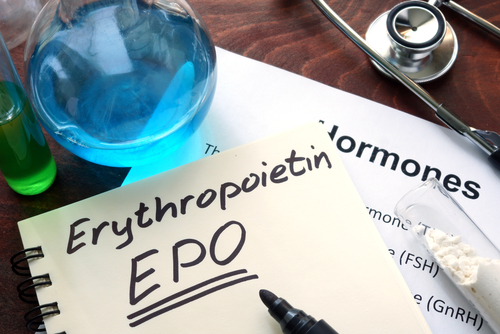Results from a clinical trial of ErepoXen — a therapy developed by Xenetic Biosciences to treat anemia in chronic kidney disease (CKD) patients, show promise, company officials said in a review of their proprietary drug development platform technology, PolyXen.
PolyXen is designed to improve the stability of biologic drugs. This new drug delivery system utilizes the natural proprieties of polysialic acid, or PSA. Attaching it to a protein improves the protein’s availability and distribution in the human body, while retaining therapeutic activity.
ErepoXen is a polysialylated form of recombinant human erythropoietin (EPO) — a hormone produced by the kidneys which is essential in promoting the production of red blood cells production. Because of kidney dysfunction, CKD patients are often anemic and require EPO replacement therapies.
Results from the Phase 1 trial in healthy individuals, and Phase 2 in CKD patients, shows that ErepoXen safely and effectively delivers EPO protein levels and maintains those levels for longer periods without activating the immune system than other available technologies. In fact, subcutaneous treatment with ErepoXen maintained EPO protein levels for about 400 hours, compared to only 22 hours for standard recombinant EPO protein.
ErepoXen is currently undergoing Phase 2/3 clinical trials through Xenetic’s partners and shareholders, the Serum Institute of India and SynBio of Russia, for treating anemia in CKD patients.
“We continue to establish a growing body of data demonstrating the broad utility of Xenetic’s proprietary PolyXen platform technology for the creation of next-generation protein therapeutics, which confers the same benefits without many of the shortcomings which exist in the current therapies,” Curtis A. Lockshin, chief scientific officer of Xenetic, said in a press release.
The company gave an overview of PolyXen and the latest clinical results at this week’s 2017 Annual PEGS Boston conference. On May 2, Lockshin gave a speech about the trial. In addition, Xenetic’s abstract, “Polysialylation – A Platform Technology for Enhancing Therapeutic Proteins and Its Clinical Application,” will be accessible after the conference on the Massachusetts-based company’s website.

